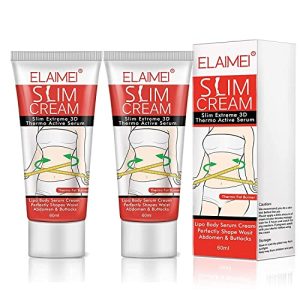If you have hyperpigmentation, you know that it can be a huge pain in the butt. It’s not just about how it makes your skin look—it’s about how it makes you feel. If you’re anything like me, you’ve tried everything to get rid of those pesky brown spots. You’ve slathered on the expensive creams and serums, which didn’t do much except remind you that you’re spending money on something that isn’t working and is actually making your skin worse.
And that’s why I’m so excited to tell you about
-
Beauty & Personal Care
2 Pack Slimming Hot Cream for Belly Fat and Cellulite
Original price was: $12.99.$9.99Current price is: $9.99. Buy Now
Laser for hyperpigmentation london

Skin pigmentation (Hyperpigmentation) occurs when melanin is overproduced in certain spots on the skin. Hyperpigmentation results in flat, darkened patches of skin that are light brown to black in colour, and can vary in size and shape.
Wearing a high SPF every day on exposed areas of your skin can help to prevent pigmentation caused by sun exposure. Hormonal induced pigmentation types such as Melasma however are difficult to prevent, as is hyperpigmentation from skin trauma and scarring.

What causes Skin Pigmentation?
There are many types of hyperpigmentation, but the following are the most common:
Pigment spots such as age spots are caused by sun exposure. For this reason, they appear mainly on body parts that are frequently exposed, such as the face, hands, and arms. They tend to be small, darkened patches of skin.
Melasma or chloasma is often referred to as “the mask of pregnancy”, as it affects 90% of pregnant women. It occurs as a result of hormonal influences such as pregnancy and birth control pills and causes dark and irregularly shaped areas on the face or arms that can be quite large. Freckles often appear on the face.
Freckles are caused by sun exposure and commonly appear on the face. Post-inflammatory hyperpigmentation occurs when a skin injury or trauma heals and leaves a flat area of discoloration behind. It’s commonly found among acne sufferers, and can also be caused by cosmetic procedures such as dermabrasion, laser treatment, and chemical peels.
TREATMENTS FOR SKIN PIGMENTATION
CARBON LASER FACIAL
Also known as the Hollywood Peel, the Carbon Laser Facial gives you 4 peels in 1, helping you refresh and revitalise your skin with no downtime.
COSMELAN DEPIGMENTATION PEEL
Cosmelan Depigmentation Peel can treat all types of pigmentation including hormone-induced pigmentation such as: melasma, chloasma and superficial pigmentation like sun damage, freckles, dark spots.
DERMAPEN MICRONEEDLING
Dermapen microneedling is one of our most popular and effective treatments. Proven to work for a range of conditions it can be tailored to your unique skin needs.
HARMONY CLEARLIFT
Laser undereye bag, neck, bikini brightening &rejuvenation treatment
HARMONY CLEARSKIN ACNE TREATMENT
Alma ClearSkin laser to treat the common signs of acne including acne lesions, blackheads, open pores and oily skin.
HERBAL GREEN PEEL
Leading dermatologist Dr Christine Schrammek set out with the goal of improving her client’s complexions quickly, safely and effectively. She wanted to unveil new skin in just 5 days – using only herbal ingredients. The result is the Green Peel®, a herbal Deep-Peeling medical-grade skin regenerating treatment powered solely by natural plant vitamins and minerals.
IPIXEL LASER RESURFACING
iPixel skin-resurfacing laser treatment helps to improve skin texture, tone and pore size, and reduces or removes the appearance of marks and blemishes.
IPL BY M22
Suitable for men & women, our state-of-the-art laser technology allows IPL Skin Rejuvenation treatments to treat any part of your body. Improving your skins tone & texture while reducing visible signs of ageing.
M22 SKIN RESURFACING
Premier Laser is proud to announce the latest skin resurfacing and skin rejuvenation treatment – Lumenis M22 Stellar. In keeping with our company ethos of bringing you the best, proven and most effective technology available, the Lumenis M22 Stellar lives up to this star billing. We are the first clinic in the UK to offer treatments using the M22 Stellar.
VITAMIN C INFUSION PEEL
This results-driven treatment will help to improve the appearance of your skin and offers a gentle, yet highly effective exfoliating skin treatment without the downtime of a harsh peel. A course of treatments are required for long term skin benefits.
Best laser for hyperpigmentation on dark skin
:max_bytes(150000):strip_icc():format(webp)/Stocksy_txpdcf1493dtHw200_Medium_3140253-copy-050e648ba2e64f0f96b3d4896d1e8489.jpg)
You read a lot about the wonders of Botox and the benefits of lasers, but you don’t always hear about the potential side effects involved. The technology for in-office beauty treatments has come a long way, but it’s still not perfect. Additionally, some of those popular lasers and light treatments pose more risks than rewards—especially for skin of color. We asked licensed esthetician and skincare expert Kerry Benjamin to help us figure out what to try and what to avoid.
MEET THE EXPERT
Kerry Benjamin is an L.A.-based esthetician. She is the founder of StackedSkincare and the StackedSkincare spa in Santa Monica, CA.
Scroll through to find out which beauty treatments women with dark skin should stay away from.
:max_bytes(150000):strip_icc():format(webp)/cdn.cliqueinc.com__cache__posts__img__uploads__current__images__0__230__139__main.original.700x0c-8f2fd496dc4547828f3edde1deb63577.jpg)
“Lasers can be very dangerous and often cause permanent damage for darker skin tones,” Benjamin says. “Putting heat on skin that already has a propensity to pigment will likely only worsen the problem; I’ve seen this way too many times with my clients.” That said, darker skin tones, including type four, five, and six skin can safely have laser hair removal with an ND-Yag laser.1 Not every laser is for every skin type.
:max_bytes(150000):strip_icc():format(webp)/cdn.cliqueinc.com__cache__posts__img__uploads__current__images__0__230__140__main.original.700x0c-82d5790438bc4361af8ba23521bf2259.jpg)
“You need to treat dark skin with caution, or you can cause serious permanent damage,” Benjamin says. “Microdermabrasion, medium-depth chemical peels, dermaplaning, and microneedling are all super safe and effective at treating acne, pigment issues, and scarring.” It may take more than six months of treatments, but when you’re dealing with the delicate skin on your face, “slow and steady wins the race” is a pretty good philosophy to adopt. And even though these procedures may not be as intense as laser treatments, you can combine multiple treatments for better results (without creating pigmentation risks). But, use caution if you have a darker skin type, or if you’re prone to hyperpigmentation with medium depth chemical peels (superficial are safer!).2
:max_bytes(150000):strip_icc():format(webp)/cdn.cliqueinc.com__cache__posts__img__uploads__current__images__0__230__141__main.original.700x0c-d9f6505b2d8b4692946f3a48f5e4c550.jpg)
At home, Benjamin recommends broadband SPF 30 or higher (duh), retinol, and products with exfoliating and skin-brightening ingredients like lactic acid, kojic acid, azelaic acid, arbutin, and licorice extract, all of which will help with skin texture and tone irregularities. “For hyperpigmentation and acne scarring, the Collagen Rejuvenating Kit is ideal,” Benjamin says. It includes an epidermal growth factor activating serum, a mineral peel with exfoliating willow bark extract and nourishing seaweed extract, and a collagen-boosting at-home microroller. “The combination of these treatments will stimulate collagen, speed up wound healing and cell turnover, and break down scar tissue to brighten and smooth out the tone and texture of the skin.” There is one caution: “People with active pustular or cystic acne should not use a microneedle. Once the acne is gone, it is safe to microneedle at home to remove any post-inflammatory pigmentation or scarring left behind from the acne.
can laser remove pigmentation permanently

Pigmentation Removal With Laser: What To Expect
Pigmentation can appear out of nowhere.
One morning you wake up and look in the mirror, and you can see little brown patches across your forehead and dotted around your face. These unwanted dark spots can build up over time and damage your self-confidence.
But pigmentation doesn’t have to be permanent. PicoSure is the most advanced laser treatment for pigmentation removal. You can get clearer, younger-looking skin without the downtime and side effects of more invasive laser treatments.
In this guide, you’ll learn everything you need to know about PicoSure pigmentation removal.
What Is Pigmentation?
Pigmentation is the colouring of your skin. Melanin is the pigment produced in your skin cells that determines the colour of your skin. When your body produces too much melanin, it causes hyperpigmentation, resulting in darker patches of skin.
Change in pigmentation can appear on almost any part of the body but usually appears on the face and other areas exposed to the sun’s powerful UV rays.
While hyperpigmentation isn’t harmful, it can make you appear older than you truly are.
What Causes Pigmentation?
There are lots of different causes for changes in pigmentation. However, for most people, pigmentation is caused by an excess of melanin. When too much melanin is produced in an area of the skin, it leads to discolouration and noticeable pigmentation.
The most common causes of pigmentation include:
- Sun exposure
- Genetics
- Change in hormones
- Birthmarks
- Damage to the skin
- Medical conditions
- Medications
Sun exposure is one of the leading causes of hyperpigmentation. This is because sun exposure triggers the body to produce more melanin to protect the skin. This is why your skin becomes darker after exposure to sunlight – a suntan.
Overexposure to the sun’s UV rays causes excessive creation of melanin which is deposited in the skin, resulting in hyperpigmentation.
Is PicoSure Laser Good for Pigmentation?
PicoSure laser treatments are the best way to treat hyperpigmentation. You can remove freckles, sun-damaged skin, pigmentation, and age spots without the downtime and risks involved with more invasive cosmetic treatments.
In a clinical study published in the Annals of Dermatology, PicoSure laser sessions were shown to be an effective treatment for melasma and pigmentation. PicoSure also has a much lower risk of adverse side effects when compared to other laser therapies.
How it Works
Your clinician can target the discolouration with PicoSure laser energy. Because the discolouration is darker than the surrounding skin, it attracts and absorbs the laser energy.
Unlike some laser therapies, PicoSure laser treatments do not damage the surrounding skin. The laser energy is delivered in one trillionth of a second. The short burst of energy doesn’t heat the skin like traditional laser treatments.
The excessive melanin deposits in the skin are shattered into tiny pieces. Your body can then naturally remove the shattered pigment from your skin, leaving you with a clearer and even-toned complexion.
A laser treatment session usually lasts around 30 minutes, depending on the size of the area being treated and the type of pigmentation.
What Happens After the Treatment?
Laser treatments are the fastest way to remove hyperpigmentation, but it still takes time to see results. Pigment will darken for 1-3 weeks following the treatment, then will begin to fade.
Immediately following a laser session, you may experience redness, tenderness, and mild swelling. Many clients say that the sensation is similar to the effect of sunburn. You may want to use a cold compress on the area to make it feel more comfortable.
It’s important that you don’t rub or scratch the area to avoid any side effects and allow the skin to heal properly.
Many people go straight back to work and social activities immediately following treatment. Any side effects should subside within a day or two of treatment. During this time, you should avoid applying any skincare products or makeup that could irritate the skin.Do I Need To Prepare?
You should avoid any laser treatments, skin needling, or chemical peels for 2 weeks before the procedure. It’s also important to protect your skin with sunscreen and avoid direct sun exposure in the week leading up to your laser session.
Your clinician may also recommend that you stop certain medication and topical skin creams a week before treatment as they can increase the light sensitivity of the skin.
If you take regular medications and/or use high grade or prescription skincare it is best to consult with our clinicians prior to your treatment.
Does Laser Pigmentation Removal Hurt?
The level of discomfort can depend on the location of the treated area and the type of pigmentation. PicoSure is a much more gentle laser treatment. Most people do not require anaesthetic and describe the sensation as similar to an elastic band flicking against the skin.
We also use a skin cooling system to minimise any discomfort.
Is There Any Downtime?
There is no downtime associated with PicoSure laser pigmentation removal. You don’t need to book any time off work or cancel any social plans. However, to allow your skin to heal your clinician will recommend that you avoid the following for the next 24 hrs, strenuous exercise, saunas, hot tubs, chlorinated pools and do not expose the treated area to direct sunlight.
Your skin will be more sensitive to sunlight immediately following treatment, so you should apply SPF 50 sunblock before leaving the clinic.
How Many Laser Sessions Are Needed for Pigmentation?
The number of sessions you will require will depend on the depth and type of pigmentation you want to treat. We usually recommend a series of up to 6 sessions spaced 3-4 weeks apart to achieve the best results. You will see an improvement after each session.
During your free consultation at b clinic, your clinician will provide a personalised treatment plan for your aesthetic goals.
Will Laser Pigmentation Removal Work for My Skin Type?
It’s essential that you see a qualified practitioner for any laser treatment. During your consultation, your clinician will determine the type of pigmentation and your skin type before recommending a treatment plan that will provide the best results.
Does Pigmentation Return After Laser Treatment?
You will require a series of laser sessions to remove pigmentation from the skin. After each session, you will see an improvement as more of the melanin deposit is shattered and flushed away by the body.
Pigmentation can return as several factors cause discolouration of the skin, including sun exposure. However, you can maintain your results for longer and stop pigmentation from appearing by protecting your skin from the sun with SPF 50 sun cream, by using high quality skincare at home and avoid prolonged exposure.

